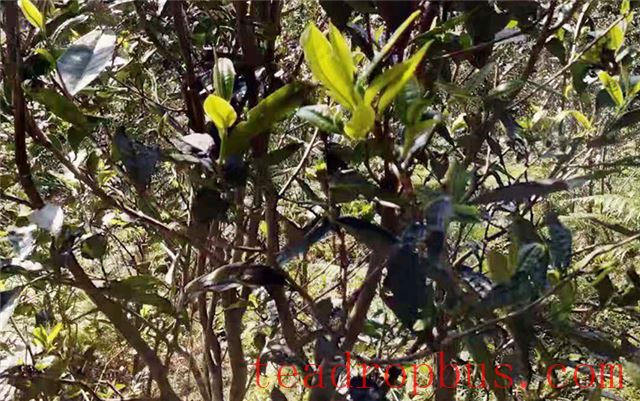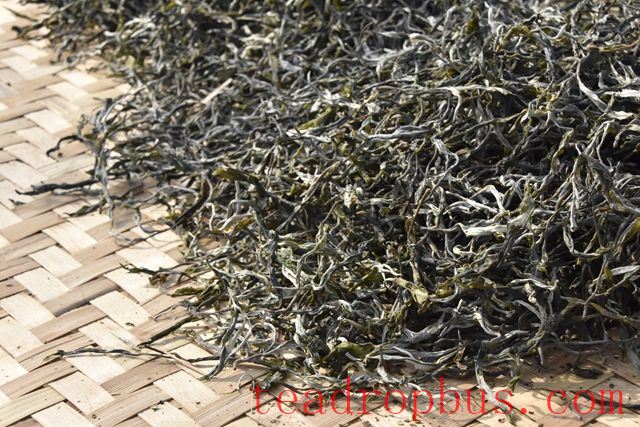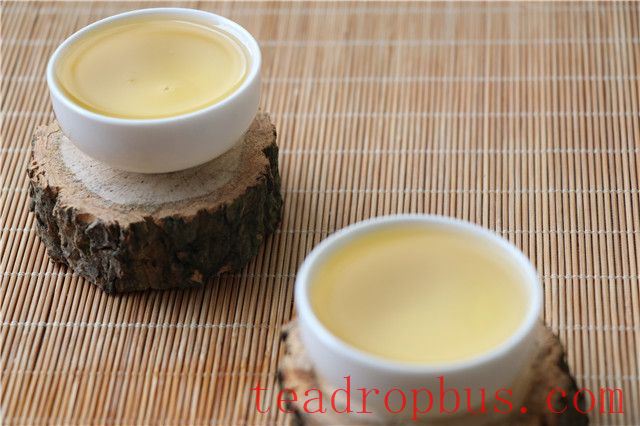Yiwu Tea often gives the impression of being gentle, but today we are recommending a Pu'er tea with a wild touch—the Yiwu WanGong.
WanGong has only gradually come into people's awareness in recent years. The long period of obscurity allowed these tea trees to avoid the craziest plucking frenzies and retain an ancient charm.

WanGong Village was once at the heart of the ancient Mansa tea area. According to local elders, before the Qing Xianfeng era, Mansa Mountain Village had a dense population exceeding ten thousand. WanGong Village and the old street of Mansa were the two most prosperous villages on Yiwu tea mountain. From the ruins of the Guandi Temple in WanGong Village, one can imagine the prosperity of days gone by. The Guandi Temple in WanGong was the largest temple in the Six Great Tea Mountains, covering over six thousand square meters. It was entirely built from cypress wood, with exquisite architecture.
However, WanGong Village has since declined. There are two theories about the cause of its decline: one is the prevalence of miasma, and the other is ethnic conflict. Perhaps due to the severity of the damage, it did not recover its former glory even during the Republic of China era. The ancient tea gardens of WanGong suffered severe destruction, and many were burned down. Nowadays, it is difficult to find large areas of tea forest there.

Whether it was natural disaster or disease, or human strife, the past history no longer matters, for WanGong Village has become so desolate that it cannot return to its former prosperity, nor can one see those vast tea forests. WanGong Village has become a sorrow for Yiwu and a lingering sadness in the hearts of many who love Pu'er tea.
Every leaf of Yiwu WanGong tea is hard-won. To pick the tea here, one must overcome mosquitoes, loneliness, and exhaustion. One must traverse through the dense forest, cross the miasma-filled WanGong River, and risk life and limb driving a motorcycle along the slippery forest paths, all to present this precious essence of the mountains to tea enthusiasts. Moreover, within this dense mountain range, tea gardens are not everywhere; one must climb over another ridge to find another more concentrated tea garden.

The ancient tea trees of WanGong have unique qualities and special aromas. The ancient tea trees in the primeval forest of Yiwu WanGong Village carry a distinct scent of the primeval forest. Due to their great age, they also exhibit an irreplaceable richness, a smoothness that is incredibly soothing, making them the pinnacle of Yiwu teas.
The taste characteristics of WanGong tea, which belongs to the large-leaf group of tea trees in Menghai, include a prominent floral and honey fragrance, a golden-yellow and bright broth, a fragrant and sweet soup that is soft, flavors that are thick and full-bodied, a long-lasting aftertaste and salivation, a deep and lingering throat sensation, with the core taste characteristic being delicate sweetness.
Encountering WanGong is rare, and the WanGong we encounter can be considered a survivor. Therefore, every encounter should be cherished and treated with care, to honor this rare opportunity and show respect for this tiny life.